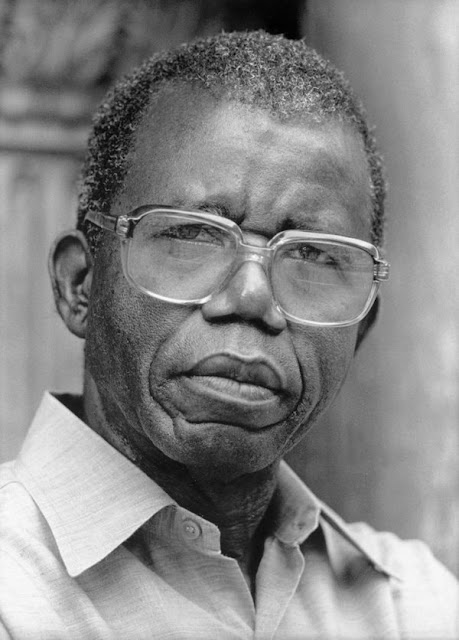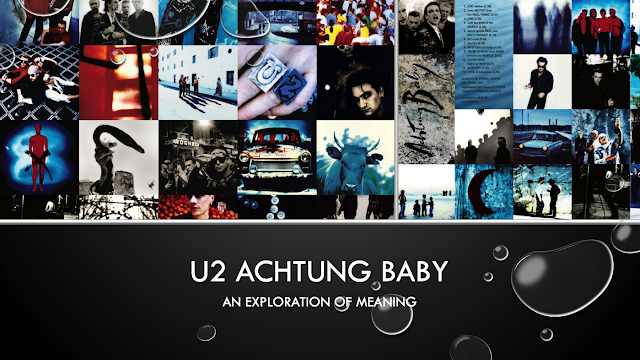Reading Journal #2: Orientalism in Conrad, Achebe, and Adichie (ENG 490)
 |
| Chinua Achebe |
Reading Journal #2: Orientalism in Conrad, Achebe, and Adichie
I found Said’s theory of Orientalism a fascinating read. His focus on the Levant region and what we call the Middle East today is a great reminder on what, historically, was considered the “Orient.” I appreciated the rigor with which he defined and summarized the origins of the “Orient” and its different meanings to France and Britain and the United States. His explanation of French and British the colonial interests and the subsequent literature and corresponding cultural influence of colonial powers and the differentiation from German and other scholarship was also enlightening. While Said focuses on the Near East and what we, in the United States, typically refer to as the Middle East, I found that his assertions on how culture impacts writing to be significant, and for me they make perfect sense and the concepts are easily transferred to writing about domination and exploitation of cultures and peoples in any part of the world. His point about “the almost total absence of any cultural positions making it possible either to identify with or dispassionately discuss the Arabs or Islam” is even more relevant today than it was when it was originally published (Said 27). I’d argue that the situation has deteriorated rather than improved since his work was first published.
After reading Said’s work, I found it useful in applying his theory and approach to Conrad’s Heart of Darkness. Conrad is complex because while he may seem to criticize the exploitation of the Congo and cast the hunger for ivory in a negative light, he also reinforces stereotypes of the local people in his work. Achebe very clearly isolates numerous examples where Conrad’s racism seeps into his writing and the impact of those racist depictions has lasted a century as new readers are exposed to Conrad’s work and subsequently are also exposed to inaccurate and racist imagery that then influences the reader’s point of reference. Even if someone reads Conrad and recognizes the racist and less than human depictions of the native people in the story, the exposure will still leave an impression. Without a significant body of literature or modern media to counteract the imagery Conrad asserts, the damage is done and the cultural reference point gains permanence.
Achebe’s response the Heart of Darkness in his essay “An Image of Africa: Racism in Conrad’s Heart of Darkness” was profoundly interesting. I found Achebe’s assertion that Conrad insulates himself from being too closely associated with Marlowe’s view by telling the story through dual narrators to be powerful. (Achebe 174) After reading the critical dismantling Achebe provides of Conrad’s work, it’s impossible not to see how the writing and the use of language works to destroy the people it subjugates as lesser or “other.”
Achebe’s work in Things Fall Apart provides echoes and a response to colonial influence that Said’s Orientalism captures. I found Okonkwo to be a frustrating character. He is not immediately likeable: he’s abusive, insecure, and does things that make me cringe, like his murder of Ikemefuna. However, he is also a strong figure—a hyper-representation of the power and strength of the culture. Even when he does the wrong thing, he is the fulcrum around which other characters can illuminate other aspects of what is an advanced culture with full systems of organization and a functioning society. The story is more powerful because it is told through a flawed protagonist at odds with elements of his own culture and in open conflict with an invading culture. His stubbornness and drive are what allow him to see how the appearance of white men among ordinary men (the flipping of the paradigm with “ordinary men” is brilliant) as a threat and give him the ability to recognize the insidious nature with which Christian missionaries in collaboration with colonial powers have undermined his culture. His rage is what allows him to recognize what his people can’t and that they subsequently will not fight to preserve their culture despite their history as a great and powerful people. Okonkwo’s suicide at the end of the novel is a powerful statement about the death of the character but also foreshadows the death of the culture and the death of the people of Umuofia’s way of life.
Chimimanda Ngozi Adichie’s short stories also echo Said’s work. Much of what he says in the introduction about “the web or racism, cultural stereotypes, political imperialism, dehumanizing ideology…” is reflected in Adichie’s stories (Said 27). Each of her stories highlights some cultural conflict that her characters face. Adichie presents the conflict very directly through Dave Bell, the dominant husband in “The Arrangers of Marriage” that is hyper-American eating only the stereotypical American foods, forbidding their native language, and changing his name to a bland American name and thus denying his heritage in order to assimilate in a culture that treats him as the “other.” Of the twelve stories in The Thing Around Your Neck, I found “The Arrangers of Marriage” the most direct assault on what “otherness” does to people. Dave Bell is an example of how radically he denies his own heritage and identity to assimilate in the United States.
Finally, in Tomi Adeyemi’s Children of Blood and Bone we see the same themes throughout the fantasy novel despite its fantasy setting. The use of a fantasy setting allows Adeyemi to demonstrate the themes of oppression and “otherness” in an indirect way—thereby making the point before the reader can avoid the topic by avoiding a story that might be presented in a more contemporary, realistic story that would hit closer to home. The “Authors Note” at the back of the novel reveals Adeyemi’s intent that the novel is a response to police brutality and violence disproportionally applied to black Americans and at the forefront of upheaval throughout the nation at the time she wrote it. Had she written a novel set in modern-day America that dealt with the same issues, the novel would be trapped in that timeframe and it would likely have fewer readers or at least a narrower audience. Her choice to write about the issues in a fantasy novel allows her access to make her point to more people. It’s placement in the Young Adult category also presents her the opportunity to influence young people that will have the chance to change the status quo in a way that older adults have not been successful.
Work Cited
Achebe, Chinua. Things Fall Apart. Edited by Francis Abiola Irele. Norton, 2009.
Adeyemi, Tomi. Children of Blood and Bone. Henry Holt and Company, 2018.
Adichie, Chimimanda Ngozi. The Thing Around Your Neck. Anchor Books, 2010.
Conrad, Joseph. Heart of Darkness.5th ed. Edited by Paul B. Armstrong. Norton, 2017.

